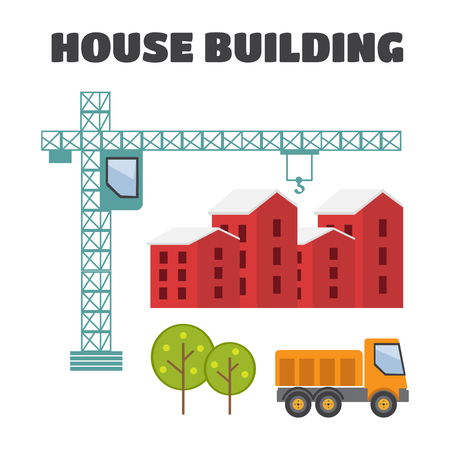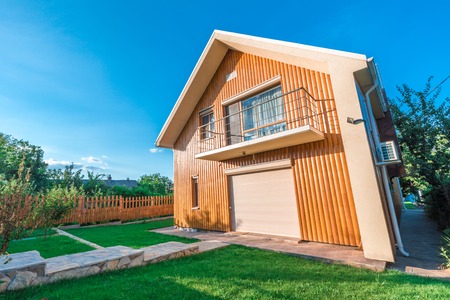Overview of Garage Conversions and House Extensions
When it comes to maximising space in British homes, homeowners often weigh up the pros and cons of garage conversions versus house extensions. Both options are popular routes for adding value and functionality, especially given the typical compact layouts found in UK properties. Generally, a garage conversion involves transforming an existing attached or detached garage into liveable space—such as an extra bedroom, home office, or utility room—while keeping within the original footprint of your property. In contrast, a house extension requires building new structures onto your home, either at the rear, side, or even upwards with a loft extension.
British planning regulations play a significant role in both projects. Many garage conversions fall under permitted development rights, meaning you might not need full planning permission if you’re not altering the structure’s footprint or appearance significantly. However, listed buildings and homes in conservation areas may require additional permissions. House extensions often require more scrutiny from local authorities due to their impact on neighbours and the overall street scene.
The table below summarises the core differences between these two approaches as they relate to typical British homes:
| Garage Conversion | House Extension | |
|---|---|---|
| Space Gained | Within existing garage footprint | Additional floor area added |
| Planning Permission | Often not required* | Usually required |
| Disruption Level | Lower (works contained) | Higher (construction outside) |
| Cost | Typically lower (£8k–£20k) | Higher (£30k+) |
| Impact on Kerb Appeal | Minimal if well designed | Potentially significant |
| Popular Uses | Office, bedroom, gym | Larger kitchens, lounges, extra bedrooms |
*Check with your local council for specifics regarding permitted development rights.
2. Cost Comparison and Budget Considerations
When deciding between a garage conversion or a house extension for your British home, understanding the costs involved is absolutely vital. Below, you’ll find a breakdown of average costs, affordable alternatives, common hidden expenses, and practical budget tips—all tailored for UK homeowners keen on DIY or stretching their pounds further.
Average Costs: Garage Conversion vs. House Extension
| Project Type | Average Cost (UK) | Completion Time |
|---|---|---|
| Garage Conversion | £7,000 – £20,000 | 2-6 weeks |
| House Extension (Single Storey) | £30,000 – £60,000+ | 8-16 weeks |
Affordable Solutions for Every Budget
- DIY Elements: Taking on basic demolition, painting, or flooring can cut labour costs considerably.
- Reuse & Recycle: Salvage existing materials from the garage or home where possible—think doors, insulation, and fixtures.
- Phased Approach: If cash flow is tight, consider splitting the project into stages—finish essentials first and add extras later.
Common Hidden Expenses to Watch Out For
- Planning Permission & Building Regulations: While many garage conversions fall under permitted development, always check with your local council to avoid surprise fees or delays.
- Structural Issues: Some garages need extra work for damp-proofing, insulation upgrades, or reinforcing foundations.
- Utilities: Extending electrics, plumbing or heating can add unforeseen costs—get multiple quotes in advance.
- VAT: Remember that most building work will incur VAT at 20% unless qualifying for specific exemptions.
Top Tips for Staying on Budget in the UK
- Get Fixed Quotes: Avoid vague estimates by asking for itemised quotes and written contracts from all tradespeople.
- Plan Ahead: The more detailed your plans and specifications, the less likely you are to face costly changes mid-project.
- Bargain Hunt: Shop around at local builders’ merchants and online marketplaces like Gumtree or Facebook Marketplace for deals on materials.
- Avoid Over-Specifying: Choose finishes that suit both your taste and your wallet—there are plenty of affordable options that look high-end.
Tackling a garage conversion is often much kinder to your bank balance compared to a full-blown extension. However, whichever route you choose, careful planning and a savvy approach can help you achieve more space without breaking the bank in true British DIY style!

3. DIY Potential and Project Complexity
For many British homeowners, taking on a home improvement project can be as much about saving money as it is about personal satisfaction. When comparing garage conversions and house extensions, the suitability for DIY varies greatly. Below is an assessment to help you decide which route might work best if youre considering rolling up your sleeves.
| Aspect | Garage Conversion | House Extension |
|---|---|---|
| DIY Suitability | Generally suitable for experienced DIYers; less structural work required | Challenging for DIY; often involves complex structural and groundwork tasks |
| Required Skills | Basic carpentry, insulation, plastering, minor electrical/plumbing (with certifications) | Advanced carpentry, bricklaying, roofing, foundation work, full electrical/plumbing install (must use certified tradespeople for certain jobs) |
| Estimated Time Frame | 4–8 weeks (depending on scope and DIY availability) | 12–24+ weeks (requires professional input at multiple stages) |
| Regulations to Watch | Building Regulations approval usually required; may need planning permission if changing external appearance; must comply with fire safety and insulation standards | Planning permission almost always needed; full Building Regulations compliance essential; Party Wall Act may apply if near neighbour’s boundary |
| Main Challenges | Damp-proofing, integrating utilities, ensuring adequate ventilation and insulation | Excavation for foundations, matching existing structure, installing new roofs/windows/doors to spec |
If you’re a keen DIY enthusiast with a knack for handywork, a garage conversion typically offers more opportunity to get stuck in while keeping costs down. However, youll still need to consult local authority building control and may require certified professionals for electrics and plumbing in line with British law. House extensions, by contrast, are generally far more demanding—most UK councils insist on engaging professionals for the design and much of the construction due to safety and compliance concerns. Whichever route you choose, always check the latest guidance from your local council before starting work to avoid costly mistakes or legal headaches later.
4. Impact on Space, Functionality, and Lifestyle
When considering whether to opt for a garage conversion or a house extension, it’s essential to weigh how each option can enhance your living space and fit the needs of different British households. Both solutions offer unique ways to upgrade your home’s functionality and can be tailored to suit families of all sizes—from young couples needing a home office, to growing families craving extra bedrooms or a playroom.
| Aspect | Garage Conversion | House Extension |
|---|---|---|
| Additional Space | Usually 15-25m²; ideal for single-room uses | Customisable size; can add multiple rooms or open-plan spaces |
| Typical Uses | Home office, snug, gym, utility room | Open-plan kitchen/diner, extra bedroom, larger lounge |
| Suits Which Households? | Singles, couples, small families with underused garages | Larger families, multigenerational homes, those needing significant space |
| Planning Challenges | Fewer permits needed; minimal disruption | May require planning permission; more building work involved |
| Lifestyle Impact | Keeps footprint the same; no garden lost; parking may be reduced | Can improve garden access & flow; might reduce outdoor space but adds wow factor indoors |
Creative Ideas to Maximise Utility in British Homes
Garage Conversions:
- Split Use Rooms: Install partition walls or sliding doors to create multi-purpose zones (e.g., study by day, guest room by night).
- Pocket Storage: Use built-in shelves and clever cabinetry to tackle clutter—especially important in older UK properties with limited storage.
- Bespoke Design: Add skylights or bi-fold doors to bring in natural light and connect the converted space with the rest of your home.
House Extensions:
- Open Plan Living: Knock through walls for sociable kitchen-diners that suit modern British family life and entertaining.
- Zoning with Furniture: Use rugs, bookcases, or low partitions to define play areas, workspaces, or cosy corners within larger extensions.
- Seamless Indoor-Outdoor Flow: Incorporate large patio doors or orangeries for easy access to gardens—a must for making the most of unpredictable UK weather.
Sustainability and Future-Proofing Tips
If you’re thinking long-term, both options can boost property value if well-executed. For budget-conscious Brits, DIY-friendly features like underfloor heating mats or modular storage systems help save on trades while adding comfort and style. Always consider insulation—especially in garages—to keep energy bills down. With some clever planning and British ingenuity, either route can transform your daily lifestyle without breaking the bank.
5. Effect on Property Value and Resale Potential
When weighing up whether to go for a garage conversion or a full house extension, it’s vital to consider how each option could affect your property’s value and future resale potential. Both improvements are popular among British homeowners, but their impact can differ significantly depending on your local housing market and buyer preferences.
UK Housing Market Insights
According to estate agents across the UK, adding extra living space is almost always a smart move in terms of increasing property value. However, the type of addition you choose can make a notable difference. Here’s a simple comparison:
| Improvement Type | Average Value Added* | Buyer Appeal | Potential Drawbacks |
|---|---|---|---|
| Garage Conversion | Up to 20% | High for home offices, playrooms, or guest bedrooms; moderate if parking is scarce in your area | If off-street parking is at a premium, removing the garage can deter some buyers |
| House Extension | 10-25% (varies by size and quality) | Very high – especially for larger kitchens, open-plan living, or extra bedrooms/bathrooms | More costly and disruptive; requires more planning permission checks |
*Based on UK estate agent estimates from 2023. Actual figures will depend on location and current market trends.
Estate Agent Perspectives
Most UK estate agents agree that while both options add value, house extensions typically offer greater flexibility and broader appeal—especially in family-oriented areas where space is king. Still, garage conversions remain attractive for buyers looking for dedicated work-from-home spaces or affordable upgrades without the hassle of major construction.
Borough-by-Borough Differences
The effect on resale also depends heavily on location. In London and other urban areas where parking is precious, sacrificing your garage could put off prospective buyers. In suburban or rural locations with ample street parking, this concern is less pressing—and the extra room might be far more desirable.
Savvy Tip: Consult Local Experts!
Before making a final decision, have a word with local estate agents who know what sells in your neighbourhood. They’ll help you gauge which option offers the best return for your investment while keeping your home attractive to future buyers.
6. Planning Permission and Legal Requirements in the UK
When deciding between a garage conversion and a house extension for your British home, understanding planning permission and legal requirements is crucial. Rules can differ depending on whether you live in England, Scotland, Wales, or Northern Ireland. Here’s a summary of what to expect and some practical tips for getting your project approved without unnecessary hassle.
Local Authority Planning Permission
Most garage conversions fall under permitted development rights, meaning you might not need formal planning permission if the work is internal and doesn’t enlarge the building. However, house extensions are more likely to require planning permission, especially if you’re altering the footprint or height of your home.
| Nation | Garage Conversion | House Extension |
|---|---|---|
| England | Usually permitted development; check local rules | Planning permission needed for larger projects or listed buildings |
| Scotland | Permitted if no external changes; consult council for exceptions | Often requires permission, especially in conservation areas |
| Wales | Similar to England; double-check with local authority | Permission required for major works or unique properties |
| Northern Ireland | Permitted with internal alterations; restrictions may apply | Permission typically needed for structural changes |
Building Regulations: What You Need to Know
No matter where you are in the UK, all garage conversions and house extensions must comply with building regulations. These rules cover structural integrity, insulation, fire safety, ventilation, and accessibility. You’ll need to submit plans to your local Building Control office and arrange inspections at key stages.
Common Pitfalls and How to Avoid Them
- Don’t assume it’s exempt: Even minor works sometimes require approval, especially if you live in a conservation area or own a listed building.
- Check restrictive covenants: Some properties have deeds that restrict certain types of development.
- Liaise early: Contact your local authority before starting any work—this can save time and money by preventing costly mistakes.
- Keep records: Maintain copies of all correspondence and approvals as proof for future property sales.
DIY Tip: Navigating Red Tape on a Budget
If you’re keen to keep costs down, consider consulting your local council’s free pre-application advice service. Many councils also provide online guides and checklists tailored to your region. By doing some legwork yourself—like preparing basic plans or checking neighbours’ projects—you can avoid expensive architectural fees while staying on the right side of the law.
7. Pros, Cons, and Decision Guide for British Homeowners
Garage Conversion vs. House Extension: At a Glance
| Option | Pros | Cons |
|---|---|---|
| Garage Conversion |
|
|
| House Extension |
|
|
Your DIY-Friendly Decision Checklist: What’s Right for You?
Budget:
Are you looking for a cost-effective solution or can you invest in a larger project?
Space Needs:
Do you only need a small office or extra room, or do you want a big open-plan kitchen/living area?
Planning Permission:
Check if your project falls under permitted development or will require a formal application.
Impact on Home Value:
A well-done extension usually adds more value, but a smart garage conversion can offer excellent returns too—especially in areas where off-road parking isn’t essential.
DIY Potential:
If you’re keen to do some of the work yourself, garage conversions are generally less complex (though always consult professionals for structural and electrical aspects).
Lifestyle & Local Considerations:
If parking is at a premium in your neighbourhood, think carefully before sacrificing your garage. On the flip side, if you rarely use your garden, an extension might make sense.
The Takeaway:
Bargain-hunters, DIYers, and those needing a quick fix often find garage conversions ideal. If your budget stretches further, you crave customisation, or need substantial space, a house extension could be the smarter long-term investment for your British home. Whichever route you take, weigh up the pros and cons above—and don’t forget to factor in local property trends to ensure your project pays off!


